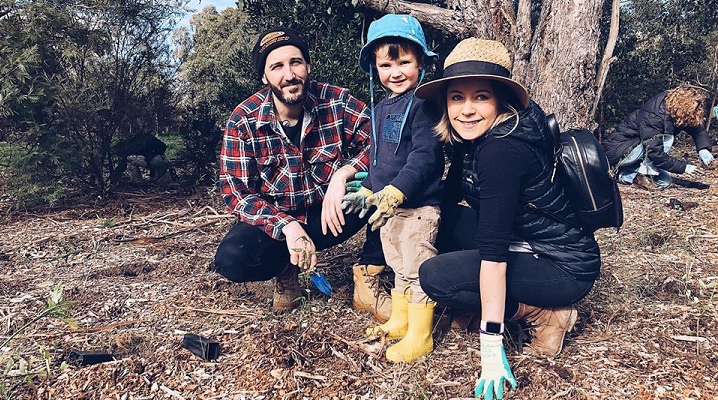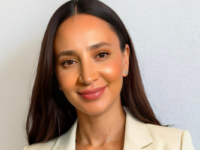Enterprise: Precious Plastic Melbourne
Green Credentials: These sustainability-focused entrepreneurs are empowering community groups, businesses, and schools to move to a progressive circular economy for plastic waste.
Co-founded by husband-and-wife team Piers and Kayla Mossuto, Precious Plastic Melbourne (PPM) was established in October 2019 with a vision to create a circular, waste-free future by repurposing traditionally hard-to-recycle plastics.
“On a planet with finite resources, our linear economy is poorly positioned to handle the challenges presented by a rapidly growing population – the products and materials we construct must be kept in the economy for as long as possible,” Kayla says. She and Piers are on a mission to move away from the ‘take, make, dispose’ model that has resulted in the inefficient use of resources, a culture of consumerism and a predisposition towards waste. “Australians use 130kg of plastic per person annually, with only 12 per cent of that being recycled, according to the WWF,” Kayla bemoans. “Compared with other developed economies, we generate more waste and recycle less.”
Realising that to reduce landfill we need to be doing more to recycle our waste, but also that the option to use this waste stream as a resource was inaccessible to smaller, lower-budget projects, Piers and Kayla set about promoting circular-economy principles. They are empowering community groups, businesses, and schools to move to a progressive circular economy for plastic waste.
“We’ve put a strong focus on growing the grassroots micro-recycling in Australia, by offering affordable recycling machinery, parts, and moulds,” Kayla explains. “We also offer manufacturing services, from concept to production, producing functional products from 100 per cent reclaimed plastic.”
By providing accessible solutions, Precious Plastic Melbourne is enabling communities and organisations to find innovative ways to: create a second life for plastics; view their waste as a resource, which can be recovered and returned to the material cycle; and manufacture their own products in Australia.
Unlike many commercial recyclers, Piers and Kayla use 100 per cent salvaged materials – no added virgin plastics or binding agents – for maximum sustainability. Their finished products can be recycled again at end of life. Any by-products of the manufacturing process, such as offcuts, sprues, etc, are simply fed through the shredder and remanufactured. Any plastics that can’t be recycled at their facility are donated back to the community, where schools and local groups often use them for art projects.
The couple have a packaging reuse program, whereby they collect and reuse packaging materials for shipping products, diverting them from landfill, and they also opt for pre-loved furniture and equipment wherever possible. “This includes our very epic vintage injection mould machine, a two-tonne machine that was originally part of the PBR manufacturing line producing parts for Holden, until they ceased production in 2017,” Kayla enthuses.
The highlight of their journey to date has been the launch of their range of Zephyr Bros recycling machines, designed and produced locally in Melbourne. “In particular, we’re very proud of our benchtop extrusion machine,” Kayla says. “Not only does this machine create new opportunities within small businesses and education by helping grow the conversation about the importance of recycling, it’s also the first commercially available hand-cranked plastic extruder in the world.”
With the demand for 100 per cent post-consumer recycled products on the increase, Piers and Kayla are confident they will continue to expand their operations and machinery range. “We also plan to implement our educational initiative, offering in-person workshops at local schools, facilitating recycling makerspaces, integrating plastic recycling into the curriculum, and hoping to offer onsite workshops educating on the importance of the circular economy,” Kayla says.
She stresses that the circular economy approach is not only vital to stopping plastic pollution, but also creates strong economic, social, and climate benefits. Believing that critical work needs to happen at the local and community level, Piers and Kayla are determined to continue working to support an expanding network of micro-recyclers and circular economy ‘do-ers’, one connected to the next, to expand the reach of sustainability and climate solutions on the ground.
This article first appeared in issue 35 of the Inside Small Business quarterly magazine












